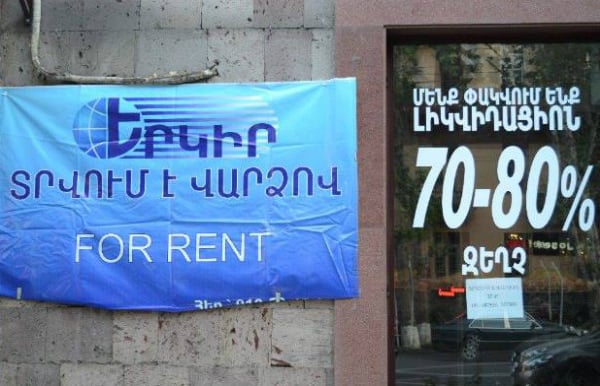
The 22nd anniversary of the independence of the Republic of Armenia turned out a bit ‘patchy’. Of course, there were waving flags, majestic fireworks, and pop songs aired on television, but there was a standstill in the public arena and in the media opposing the fanfare.
It seems, along with the fact of being an independent and sovereign country, also subjected to review was the claim of having a free and independent media.
Independence Day, Sept. 21, was an opportunity to ponder the myths and notions we’ve created, edited, and appropriated over the years, which, after all, helped shape today’s hopeless reality with its limited prospects.
The media is that arena where our notions about our lives appear the best. After all, a country’s main product is its mythicizing visions of the future (via TV programs, news articles, posters, billboards, commercials, and even posts on social networking sites), which continues in the economic, social, and cultural sectors. Simply put, media messages wittingly or unwittingly show us what we are dreaming of and what we are escaping from.
And the sad thing is today it’s quite difficult to draw the boundaries between these two opposing movements (aspiration and escape) because they’ve become unrecognizably blurred. We were escaping from the Soviet Union, wanting an independent Armenia, but now we are being convinced that it’s possible also to forego independence (or as a former MP recently put it, “certain attributes of independence”) — to even strive for its refusal.
Looking back, you see that what you dreamed of and declared 20 years ago is slowly disappearing: the euphoria of independence and the enormous dose of freedom during these two decades is exploding drop by drop. Of course, now, unlike in the 90s, there are more different media (multimedia) organizations, journalists make up a significant percentage of the population (everyone has a bit of journalist in them), and the spread of information has become easy and fast (thank god for the Internet). But a new element clearly operating in the public arena and the media has been added, which can be conditionally called “the clogged pipe effect”.
Say, something acute and truly of public significance happens, news outlets write about it, inform us, analyze, and often warn us, beat their chests, and the public organizes demonstrations, protests. But the old market building [of cultural and historic significance] was successfully “modernized,” deforming its former appearance and purpose. And when it already became clear that the owner/MP of the building under state protection managed in the end to demolish the monument, ignoring the law, it seems the information pipe began to work. That is, the information got a response from relevant bodies and again returned to the media arena.
News reports from H1, the Armenian state broadcaster’s channel, said that the work of preserving monuments will become stricter now and though, alas, the ‘Covered Market’ can no longer be saved, such incidents will be prevented in the future.
This is akin to the message of striving for independence while simultaneously escaping from it. Is that possible? It turns out, yes. Building by building, news report by news report… Distorting and manipulating the facts and the way they’re composed, we’ve arrived at the point when information flows freely but is often confronted with blockage it cannot bypass.
And so a new myth was created: there is a free and independent media but it is consumed in the virtual world it created and rarely has an impact on real (legislative or legal) life. There are many examples; simply recall the reports about the official or clergyman involved in the offshore property scandal, which continue to remain “clogged” — perhaps indefinitely.
The same myth began to operate in other domains: presenting Armenians with models of the future which in any situation can become clogged, filthy, thwarted. They are aimed at resolving narrow, current issues — with no room for broader ideas about the future.
And so, in its 22nd year of independence, Armenia gave its vision of the future a passing mention. As a result, a mood of surrendering began to reign. If, in a global sense, you have no dream, there’s no point in escaping either…
If you’ve noticed, recently increasing in the city are “For Sale” signs, which are stuck on shops, kiosks, beauty salons, fenced deserted areas (lots), and partially constructed or fully furnished buildings. There are phone numbers listed on those signs and, as a rule, the line “For Sale or For Rent” — which proves that the owners themselves haven’t decided what they want in the future.
The future is blurred perhaps because no information pipe works well. And the journalists who dig up information and make it public also can’t quite figure out what they’re working for, if a significant portion of the information is going to become clogged in the pipeline.
Nune Hakhverdyan
The views expressed in the column are those of the author's and do not necessarily reflect the views of Media.am.


Add new comment
Comments by Media.am readers become public after moderation. We urge our readers not to leave anonymous comments. It’s always nice to know with whom one is speaking.
We do not publish comments that contain profanities, non-normative lexicon, personal attacks or threats. We do not publish comments that spread hate.